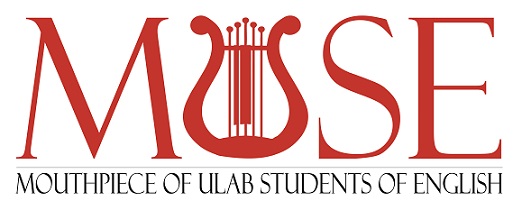Feature Article
Afsana Rahman
Tolerance is defined as the liberal view towards the cultures of our world, of our expressions and ways of shaping our humanity in all its richness and diversity. Tolerance therefore, is respecting people’s ideas, religious views and opinions. Undoubtedly, tolerance cannot be enforced, though the value of it can be taught and promoted by the family and educational institutions. Gladly, University of Liberal Arts, Bangladesh is a firm believer of liberalism as the very name suggests so. Hence, tolerance being of great importance for ULAB and its students, ULAB is promoting tolerance which is not only a cherished principle, but prerequisite for peace and for the economic and social development for our country.
Tolerance not only describes the mere act of tolerating, but it is also a very important value for the peaceful coexistence in a society. Every individual, in a society is unique and they possess distinctive beliefs. In order to live without any disorder in the society everyone has to be liberal towards others’ ideas and opinions. Here, tolerance is the most important aspect as it enables us to live peacefully in a social setting. The subject of tolerance is now often the individuals themselves, perhaps because they have a certain origin or sexual orientation or belong to a certain ethnic group.
Respecting all the cultures and individual views and identities, such as ethnicity, sexual orientation, and religious views will make a person a better human being. Most importantly, one cannot change one’s ethnicity or sexual orientation. In the face of the unchanging, we are all required to be tolerant. Moreover, subjective choices should not be any variable to judge a person as every individual’s belief should be respected by their fellow members of the society. In respect of building better individuals ULAB’s initiatives such as conferences on the plight of refugees or promoting tolerance is certainly praise worthy.
When examined critically, the world, on a generic basis, is not quite tolerant even though the surface appearance tends to tell us so. The younger generation is not informed or even taught the moral values as needed. This generation is being taught to detest others very easily. Besides, the hegemonic empire of the sound-bite media also misleads them in the name of promoting self-awareness, acceptance, and tolerance. If this culture is continued, clearly, hatred would prevail instead of tolerance.
In short, tolerance is harmony across differences. It is not only a moral obligation, but also a political and legal necessity. It is a virtue that enables peace and helps us overcome the cult of war through a culture of peace. The education on moral value starts from the family and continues in the academic life. Therefore, the educational institutions in Bangladesh can take the initiative to promote moral values like tolerance where the Department of English and Humanities at ULAB, for instance, can be a model for building a better younger generation for this country, dutiful and open-minded, ready to face any challenge the post-humane world poses against them.

